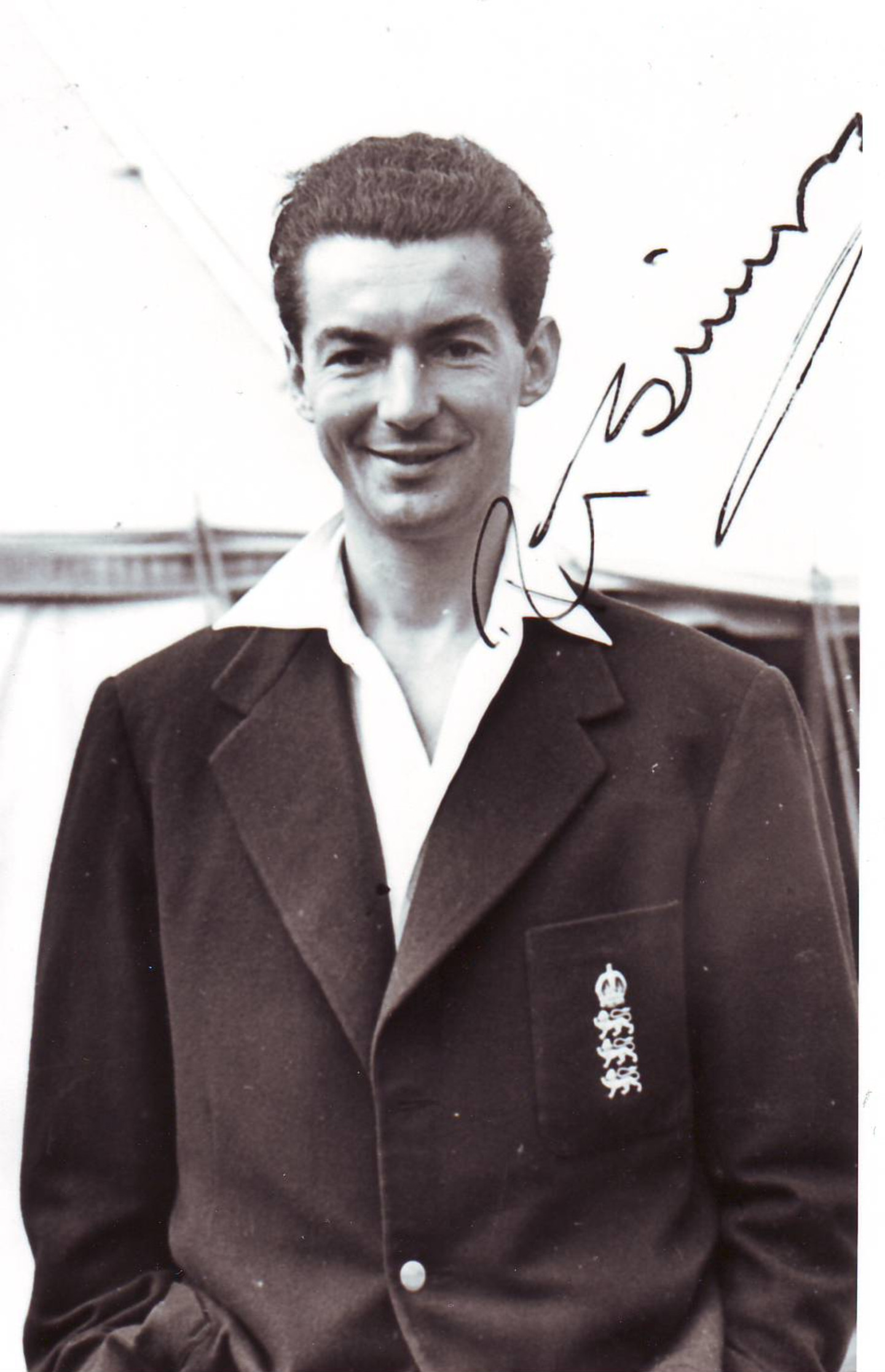“Reg purposefully embarks on his cricket with the ardour of a man for whom the game is life, enjoyment, with a zest and keenness for it which nothing will ever diminish. For him all cricket hours are happy hours, even the weary ones of the endless chase on a baked surface when other batsmen are rampant and ruthless.” So it was that the Notts reporter, A.J Turner described Reg at the time he made his Test debut in England in 1949.
More than seventy years have elapsed since that day when Reg hit a masterly hundred off the New Zealand attack at Old Trafford. Reg raced from 50 to 103 in 27 minutes and was caught on the boundary trying for a fourth six, having just completed his first Test hundred.
The most outstanding Nottinghamshire batsman of his day, Reginald Thomas Simpson was born in Sherwood Rise on 27 February 1920.
His early cricket was at Mountford House School and from there he went to Nottingham High School, gaining a place in the 1st XI at the age of 13. A successful record in school cricket led to him playing in Notts Club & Ground matches at the age of 15; in the first season after leaving school he topped the batting averages in Notts and Derby Border League.
His Notts first team debut came in a war-time fixture at Trent Bridge in July 1940 v RAF when he hit 65 out of the Notts total of 114. At this time he was with the Nottingham City Police Force but then joined the RAF and an overseas posting limited his county cricket – the Notts games were only one day affairs, with the occasional two day bank holiday fixture.
The autumn of 1944 found him in India, and in between his flying duties he played a handful of First-Class matches, making his debut for Sind province in the Ranji Trophy.
The war over Reg returned to England and made his First-Class Notts debut whilst awaiting demobilisation.
His third season in county cricket saw him selected as 12th man for England and the following winter (1948/49) found Reg in South Africa with the MCC side.
He topped 2,000 runs for the first of five times in 1949, while in 1950 he was the leading English batsman of the season.
1950/51 was the season of The Ashes series under Freddie Brown. The series culminated in England's first post war victory over Australia in Melbourne. Simpson hit 156 not out. With Tattersall he added 74 for the last wicket – Simpson's contribution was 64 made in an hour.
Neville Cardus noted “…with nobody to rely on for company of any duration or intimacy, he proceeded to play the innings of his life, a resurrection and a reformation in one".
In 1951, now captain of Notts, he became the first Notts batsman to score a Test century at Trent Bridge when he made 137 against South Africa, outscoring even the mercurial Dennis Compton.
Apart from his batting skills, Simpson was an outstanding fielding in the deep – Bradman described the catch with which Simpson dismissed Tallon in the 1953 Test at Trent Bridge, as the most spectacular of its kind he had witnessed.
Reg played 27 times for England, scoring 1,401 runs at an average of 33.35 and including four hundreds.
He retired as Notts captain at the close of the 1960 season but continued to play occasionally until 1963. In all First-Class matches he hit 30,546 runs at an average of 38.32; he scored 64 hundreds and his highest score was 259 for the M.C.C. against New South Wales in 1950/51.
Apart from feats on the cricket field, he played rugby to a high standard, 67 appearances for Notts RFC, and, later, soccer. After retiring from cricket he was a very competent golfer.
Reg always held very trenchant views on all aspects of cricket, especially in the field of coaching and the development of young players. In the spring of 1961 he was elected to the Notts Committee and served for 37 years - another record to add to all those he made as a batsman during his twenty years as a First-Class cricketer. After standing down from the Committee, he was made a Vice President.
Reg Simpson passed away on 22 November 2013, aged 93.
November 2023
Nottinghamshire First-Class Number: 376
